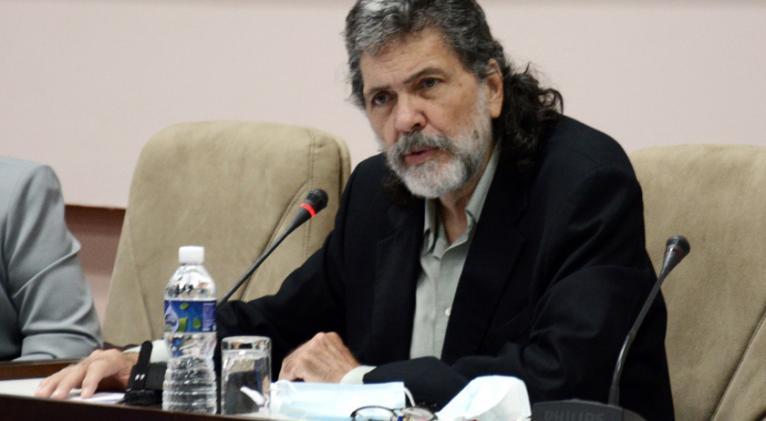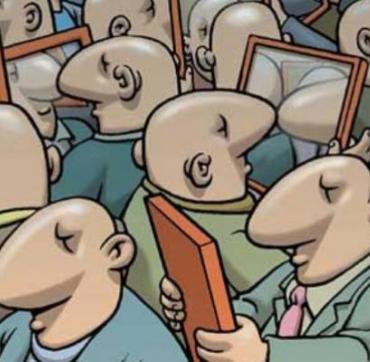Abel Prieto: Cultural Colonization in Cuba is Disturbing
especiales

At present, there’s a disturbing growth in the reproduction of patterns that indicate the presence of cultural colonization in Cuba, affirmed Abel Prieto Jiménez, president of Casa de las Américas, when speaking at the International Pedagogy 2023 Congress.
From the Havana Convention Center and during the panel The Debate in Cuba Today on Cultural Colonization, Prieto Jiménez pointed out that recently in the country there have been episodes that denote the existence of this phenomenon, as happened in Holguín in October 2022. When young people appeared in a public square in that eastern province disguised with Ku Klux Klan hoods.
When ignorance and colonization come together they can have the same or similar consequences to fascism, he said.
He highlighted that they are working on the Sow Ideas, Sow Awareness program, allegorical to a phrase by Commander in Chief Fidel Castro Ruz that invites Cubans to develop critical thinking and cultural resistance.
Prieto Jiménez specified that its key objective is the promotion of roots and national heritage through workshops in educational and media institutions as well as families to deal with the consumption of dull content.
The president of Casa de las Américas commented to the delegates and guests at Pedagogy 2023 that since 1959 Cuba has had a cultural and educational policy with a decolonizing perspective.
The Revolution was interested in training educated and free people and that materialized in the creation of institutions such as the Cuban Institute of Cinematographic Art and Industry, the National Printing House, the Casa de las Américas and the National Theater, he pointed out.
He said that the year 1961 was crucial because the Literacy Campaign was developed, with which the nation declared itself a territory free of illiteracy.
Starting from Fidel's speech Words to Intellectuals, an unprecedented anti-dogmatic and anti-sectarian cultural policy was drawn up for Cuba, he affirmed.
He highlighted that the emergence of the Casa del Caribe, the Alejo Carpentier, Nicolás Guillén, and Fernando Ortiz foundations, as well as the centers specialized in the work of the National Hero of Cuba, José Martí, and Fidel Castro completed the institutional panorama to confront colonization.
According to Prieto Jiménez, the Apostle of Cuban independence and the Commander in Chief constitute the two essential figures in the decolonizing thought of the archipelago.
Also taking part in the panel were Marlene Vázquez Pérez, director of the Center for Marti Studies; René González Barrios, director of the Fidel Castro Center; the intellectual Víctor Fowler Calzada, and Sivia Navarro Quintero, director of the National Institute of Pedagogical Sciences.
Until February 3rd, the International Pedagogy Congress 2023 will host participants from more than 50 countries in a hybrid mode who will present their experiences on inclusive, equitable, and quality education in the world.
Translated by Amilkal Labañino / CubaSí Translation Staff














Add new comment